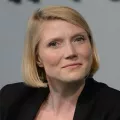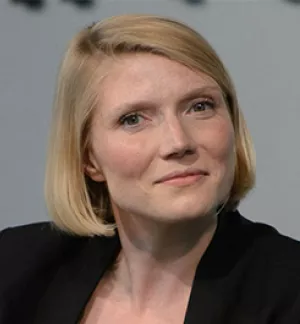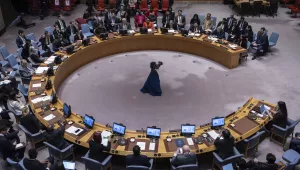On 24 and 25 November 2016 experts from politics and academia discussed the impact of Brexit on several policy areas in a series of workshops at the Hertie School of Governance in Berlin. All events took place under Chatham House rules.
Workshop 3 discussed the impacts of the UK’s EU referendum and Donald J. Trump’s election as 45th US president on US foreign policy. Tobias Fella, Dahrendorf Research Associate at the Hertie School, summarizes the primary conclusions from the workshop participants.
The West is Changing
Participants agreed that Donald Trump’s election is a major pushback against globalization. They furthermore acknowledged that it is no coincidence that America and Britain were hit hardest by the populist wave. Both dismantled their welfare states in the 1990s and therefore fell short of shielding their population from the negative effects of globalisation. The same holds true for much of Europe, where promises of prosperity, security and progress have been broken over the last decade.
Therefore, to confront populism, governments need policies to reach out to disenfranchised voters, including massive investments in infrastructure and education. Additionally, Western politics needs to find new narratives to prove their purpose to the world and to their own citizens.
Isolationist and Unilateralist America
There was broad consensus that a Trump presidency will signal a major departure from the internationalist orthodoxy that guided US foreign policy in the 20st century. America will take further steps back from being the world’s policeman accelerating a trend that had already set in during the Obama administration.
Like many U.S. officials before him, Trump complained that European allies are not taking their defence commitments seriously. But unlike his predecessors, he seems to be expecting quick results. While this may not be new, the election has shattered America’s soft power and damaged the Western ideal of democracy, making it more difficult for others to pick up the burden of the liberal order.
Therefore, the United States is expected to be both more isolationist and more unilateralist. America will be less engaged internationally unless, as one workshop attendant put it bluntly, ‘Trump gets really angry’. However, it is unclear where he will draw the line.
Even Trump Has Limits
Mr Trump’s foreign policy plans remain nebulous. But his most extreme positions such as pulling out of NATO, according to some participants, are unlikely to take shape. Most candidates for president swing to extremes during the election process but move to the middle post-inauguration.
For others disruptive change is a real possibility – not due to a change in grand strategy but due to his impulsiveness and lack of self-control. And still, if disruptive change does not occur, his positions will lead to serious changes. His tough anti-trade stance bodes ill for the future of TTIP. Obama’s climate agenda will quickly be rolled back. US-Russia relations could see another ‘reset’ given that Trump said he would consider lifting sanctions against Moscow and recognizing the Russian annexation of Crimea.
Yet, it the greatest fears of many are not likely to become reality. President Trump will be constrained by the US bureaucracy, by the judiciary and his cabinet. A clear sign is that officials in Congress and the Pentagon seem to be ready to block any attempt to appease Vladimir Putin.
All Eyes on Europe
Workshop participants agreed that Europe has to switch from campaign mode to policy mode. For the international order to be saved, a joint transatlantic approach is needed. Still, some of Mr Trump’s rhetoric remains unacceptable. Leading the free world requires a clear commitment to basic liberal-democratic values.
Europeans speaking with ‘one voice’, all agreed, should be able to influence US decision making. This is even more true since Mr Trump is expected to create a more decentralized structure of government than his predecessor. And America will need its allies to advance its strategic interests. Nevertheless, Europeans will have to prove that the US can gain from a close security cooperation, whereas the US has to make clear its commitments to NATO. On this basis, Trump might even be able to engage the Russian President Putin directly and try to negotiate a new détente.
But Europe shouldn’t wait for Trump. It needs to come up with its own strategy to engage the new administration and to hedge against changes in US grand strategy. In the absence of American leadership, Europeans have to become leaders of their own. If they are up to the task.
Speakers at the workshop included Cathryn Clüver (Harvard Kennedy School), Xenia Wickett(Chatham House) and Sebastian Groth (Federal Foreign Office). Helmut K. Anheier (Hertie School of Governance) offered introductory remarks. The discussion was moderated by Tim Oliver (London School of Economics and Political Science). The workshop was attended by more than 40 international experts.
Fella, Tobias. "Brave New World? What Trump and Brexit Mean for European Foreign Policy." The Dahrendorf Forum. December 08, 2016.
The full text of this publication is available in the link below.




